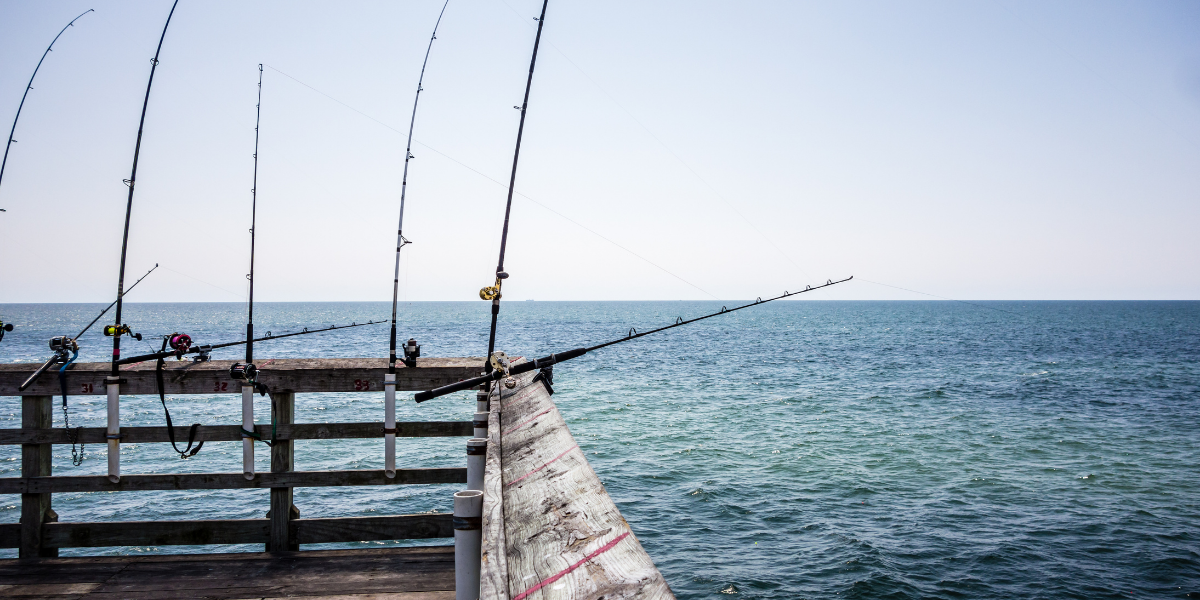Board Director Rocky Carter: My Dream of Abundant Waters


Rocky Carter, Swansboro
My Dream of Abundant Waters
by Rocky Carter, NCWF board director
My dad was Cherokee Indian. He started taking me fishing when I was a little boy. We lived at the dead-end of a dirt road, near High Point, and as a kid, I was free to roam the woods and sneak into ponds. The great outdoors was my entire world.
That world changed when I was 10 years old. We were visiting our rich cousins in Georgia. We knew they were rich because they had a basement instead of a crawl space. I slept in their “dungeon” that night, and on the nightstand was a fishing magazine. Up until that moment, I thought there were 3 kinds of fish: bass, bream, and catfish. In my experience, none of those grew to more than a foot long. An article in that magazine told of tunas and marlins that weighed over 1,000 pounds. There were pictures of these giants.
At this point in my life, I have been fortunate to fish in 12 different states, and ironically, 12 countries. For my first 50 years, the very essence of fishing for me was honing my skills to catch game fish. Every day I fished, and every cast I made was filled with hope.
Over the years, I’ve listened to the old-timers tell stories about how abundant our coastal waters were, especially in the 1960s and ‘70s. Now, I’m an old-timer. My hair is white. I have gout, an aching back, and sometimes I just don’t have that pep in my step. And now, I fish more for fellowship. I’ve experienced, first-hand, declining fish stocks. But I still have my dreams. Thankfully, our generation is the first generation to recognize the need for conservation and preservation. Today, more than ever, we recognize the effect our footprint has had on our resources.
But there still exists a perception that “there is enough fish for everybody.” That is no longer true. Ignoring the facts does not change the facts. Science shows declining stocks in most coastal species. The reasons are many—years of coastal development, destruction of habitat, and the netting of juvenile finfish among them. Yet the options for our response are limited. Immediate measures must be taken. Fishery management is not about allocations or redistribution. It’s about preserving what we have and managing for sustainability. Why would we not allow existing stocks to repopulate our sounds, our bays, our estuaries, and our oceans? Simply let these fish spawn.
Many of you have heard the old saying, “recognizing a problem is half of solving it.” For fishery management in North Carolina, that is not turning out to be true. It is the proverbial hot potato in Raleigh that legislators don’t want to hold.
Our stocks have suffered. No one group or organization is to blame. Everyone is doing what they love to do and need to do, which is to catch fish. With pressure coming from nets, trawlers, and technology, it is no wonder our fisheries are dwindling. Immediate measures have to be taken or our current fisheries will go the way of river herring.
I have an amazing, wonderful daughter. She is now 16 years old. Some day she may have a son or a daughter who loves to fish. I want her to tell her children that their grandfather educated himself on the issues facing our fisheries and tried to educate others. I want her to tell her children, “Your grandfather fought hard so that you might fish in abundant waters.”
That’s my dream, and always has been: A dream of abundant waters once again, not for me, but for you, your children, and your grandchildren.

